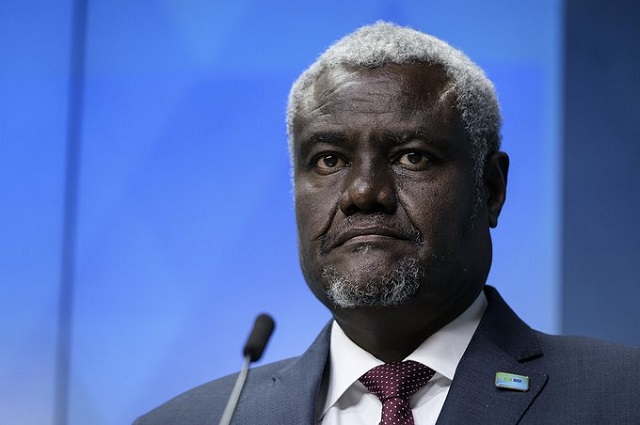
Educate an African fit for the 21st Century: Building resilient education systems for increased access to inclusive, lifelong, quality, and relevant learning in Africa.
ADDIS ABABA | Xinhua | Experts and policymakers attending a high-level education-themed meeting on Friday called for transforming education systems in Africa for the betterment of the African continent, on the sidelines of the ongoing African Union (AU) Summit.
The summit, scheduled from Wednesday to Sunday in Addis Ababa, the capital of Ethiopia, is held under the theme “Educate an African fit for the 21st Century: Building resilient education systems for increased access to inclusive, lifelong, quality, and relevant learning in Africa.”
Chairperson of the AU Commission Moussa Faki Mahamat said the required changes as part of transforming the education systems in Africa should include ensuring better access to quality education, availability of adequately trained teachers, and streamlining education systems with the needs of the job market.
The AU commission chief called on African policymakers and all concerned actors to join hands to “open ways for the future of Africans endowed with capacities required to transform our continent.”
Noting that there is a deficit of 17 million teachers in Africa, Faki said “we cannot realize the Africa that we want without really taking up this challenge. We need to have well-trained teachers.”
“The African Union is committed and will provide the necessary leadership in order to coordinate our collective efforts to educate Africa and prepare the continent for the 21st century,” he affirmed.
The high-level gathering, which brought together African leaders, executives from UN agencies, and representatives of other concerned bodies, aimed to amplify the visibility of the AU’s theme of the year at the highest echelons of governance.
It is also expected to encourage partners to recommit their support to the AU and its member countries in the successful rollout of the education roadmap.
Executive Secretary of the United Nations Economic Commission for Africa (UNECA), Claver Gatete, echoed Faki’s sentiment, noting that high-quality education and lifelong learning are the catalysts to achieve Sustainable Development Goals (SDGs) and Agenda 2063.
“We know that our education systems require urgent reforms if we are to get to the Africa we want. In this 21st century, it is not okay that one in five children of school age do not attend school,” the UNECA chief said.
“We need education programs that improve affordability, access, quality institutional credibility, and deliver employable skills and entrepreneurship attributes,” he said.
Gatete underscored the importance of science, technology and innovation, as well as initiatives that promote technical and vocational education and training. He said the education system in Africa needs to promote science, technology, engineering, and mathematics in Africa (STEM).
“Indeed, the benefits that Africa can realize by getting our education system right are undeniable. But we cannot do this if only 2 percent of African universities are ranked in the top 500 globally in STEM fields. We will not succeed if women remain under-represented,” he said.
Ethiopian President Sahle-Work Zewde, on her part, said that higher political commitment to education and greater investment backing are important impetus to transform the education system in Africa. “We must absolutely increase financing for education, training, and research. To truly transform education, we need to rethink our educational models and approaches,” she said.
She said efforts to transform the education system need to be carefully crafted toward addressing the persistent challenges that are widely visible in education systems across Africa. “The challenges are stark. While we have the largest share of youth in the world, one out of every five children is out of primary school, almost 6 in 10 adolescents are out of secondary school, and the proportion of young people who are not in employment, education, or training in Sub-Saharan Africa has worsened.”
According to the AU, the theme of the year recognizes the need to intensify continental efforts aimed at bridging the gaps toward the attainment of Africa’s education-related objectives as outlined in the AU’s 50-year continental development blueprint, Agenda 2063.
The theme of the year seeks to galvanize AU member states toward fulfilling the Continental Education Strategy for Africa, education-related targets of AU’s 50-year continental development Agenda 2063, as well as the SDGs.
“This initiative is particularly crucial as Africa faces the most significant challenges globally, with the lowest educational attainment levels,” the AU said. It said the focus on education as the theme of the year underscores a strategic moment for in-depth discussions on enhancing access to quality education across Africa, advocating for increased investments, and the formulation of effective policies. ■
 The Independent Uganda: You get the Truth we Pay the Price
The Independent Uganda: You get the Truth we Pay the Price





